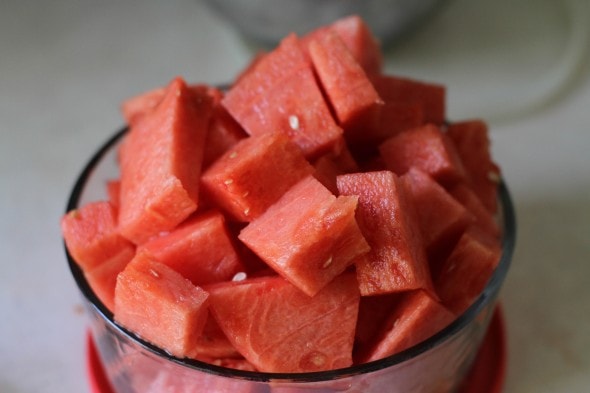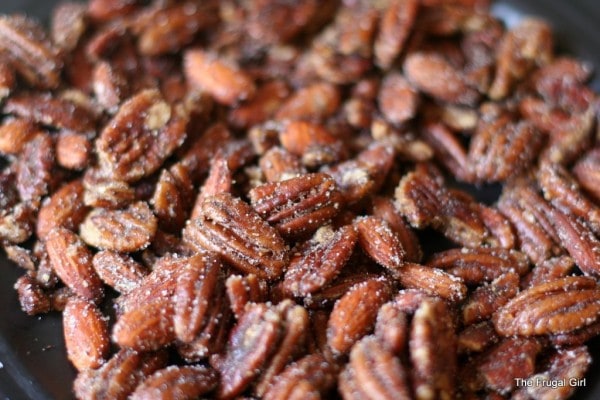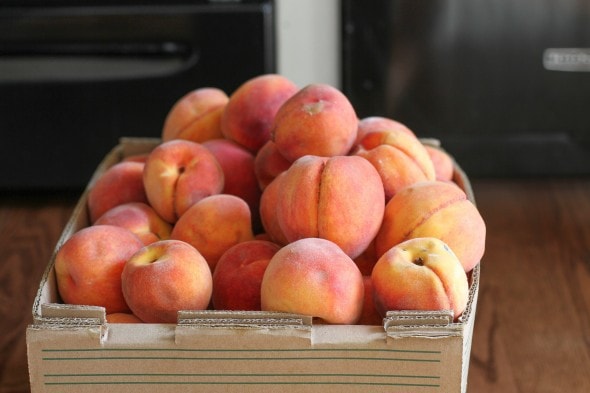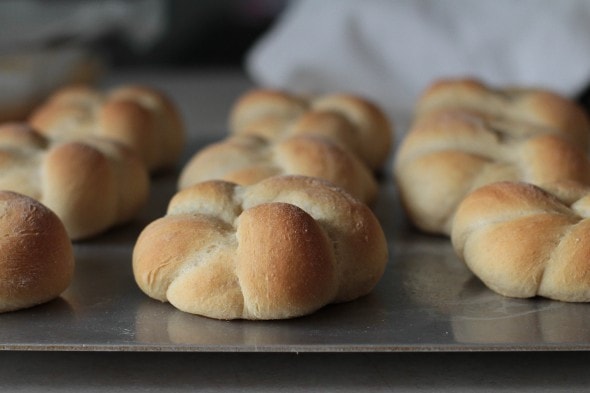Back in April, CNN published an article about a global diet study that had sort of surprising results:
Many diet-related deaths are due not to over-consumption of “bad” foods, but to under-consumption of nutrient-dense foods, such as whole grains, fruit, nuts, and seeds.

It’s not the sodas that are killing us, it’s the lack of fruit.
Even the trans fat isn’t as big of a problem as the lack of whole grains.
This is interesting because usually when we think about cleaning up our diets or our family’s diets, we think about what we should not be eating.
Don’t drink soda, don’t buy cookies, don’t eat bacon, don’t buy fast food, and so on.
If the results of this study are true, though, that’s not the best approach to take.

Instead of focusing on what not to eat, we can focus on what we should eat.
I like that this is a more positive way of thinking about diet, which makes it feels less restrictive.
(I’m a moderator, not an abstainer, so I really bristle at restrictive food rules anyway.)
Of course, if you are focusing on getting in whole grains, fruits, nuts, and seeds, you probably will end up eating a little less junk food (the one will push the other out), but that’ll be a side effect, not the focus.

Isn’t this way of eating expensive?
Yes and no.
It depends on what you’ve been eating instead of healthy foods.
If you compare a diet rich in whole grains, nuts, seeds, and produce to, say, a diet of ramen and mac n cheese, then yep, it’s expensive.

But if you’ve been eating fast food, takeout, and frozen meals, then I think it’s quite possible to eat a healthier diet for less.
There are inexpensive whole grains, such as oatmeal. Fancy whole grain bread is expensive, but there are less expensive options available too, and you could make bread at home if you wish.
(Homemade bread is cheaper even than bottom-of-the-barrel cheap white bread. I did the math!)

If you have an Aldi near you, then quinoa is affordable too, as are whole grain crackers and shredded wheat cereal.
Fruits can be inexpensive too, if you stick with things like apples, bananas, and oranges. Aldi has great prices on things like pineapple, watermelon, and berries too!
And of course, eating healthfully is almost always cheapest when you prep and eat your food at home. There are healthy options for fast food and takeout, but things like acai bowls, quinoa bowls, green smoothies, salads, and the like tend to be fairly expensive.
______________
I hope the CNN article and this post help you feel positive about food! To sum up, two happy things here:
- Adding nutrient-dense food to your diet can do great things for your health
- You don’t need to spend a gazillion dollars to get whole grains and fruit.
______________
I’d love to hear your thoughts on this post and on the study. And if you have a good tip about getting more healthy foods into your diet without spending a bunch of money, we’d love to hear in the comments!
P.S. I went back into my archives and noticed that when I wrote a post to answer a reader’s “How do you stay thin?” question, one of my points was that I try to make a point of looking for foods that give me lots of nutrition.
I was doing that because it works for me, but I’m glad this study showed it’s a pretty healthy approach.

Jenny
Saturday 22nd of June 2019
Yep, as I was reading and nodding, I kept thinking "garden"!!! I have learned over the years to garden in a frugal way (trade plants and seeds, canning, drying, use freezer, etc.) Of course I'm aware that not everyone is able or wants to do this, but my food costs are very low, due to sales shopping, baking, home cooking and growing my own. I'm grateful!
Linda M
Friday 21st of June 2019
I think this post is spot on. One thing that helps keep cost down is to buy seasonal food...it is cheaper. Also, keep things prepped ahead helps avoid the whacky and processed foods. Prep more at once avoids extra time in getting things out and cleaning up....you just do it once. Processed food is also more addictive and less satiating. If you can grow anything, it also saves a ton of money and tastes so good. Getting the family involved in the prep makes for family togetherness and lets the kids feel more connected to their food. I know I feel so much better when I eat whole and unprocessed foods. With that said, it is often one step forward and two steps back.
Suzan
Friday 21st of June 2019
We do try to eat homemade food. I spend quite a lot on fruit and vegetables and I buy them at the cheapest green grocery around here. My breakfast is a standard dish of porridge and blueberries every day. The other fruits and veg change with the season.I have battled my weight all my life and even though I am trying I am still losing the battle.
Martha
Thursday 20th of June 2019
I do love this approach and have followed it for years, although I do abstain completely from processed sugar and transfats because they have an addictive effect on me.
I do want to caution folks: 15 years of healthy eating and I still had a heart attack due to coronary artery disease. I'm a healthy weight by BMI and get moderate exercise.
The moral of the story is diet alone does not guarantee good health.
Jill
Thursday 20th of June 2019
I love this. After years of dieting - like Weight Watchers - I'm just trying to add more "good" food including 5 servings of fruits and vegetables, working my way up to 8, and snacking on nuts. I'm really not trying for weight loss now but just keeping my numbers in check at the doctor - though I could definitely stand to lose a few pounds I've found that losing after menopause has been incredibly difficult. My point being that I just want to concentrate on "healthy" now. Great article.